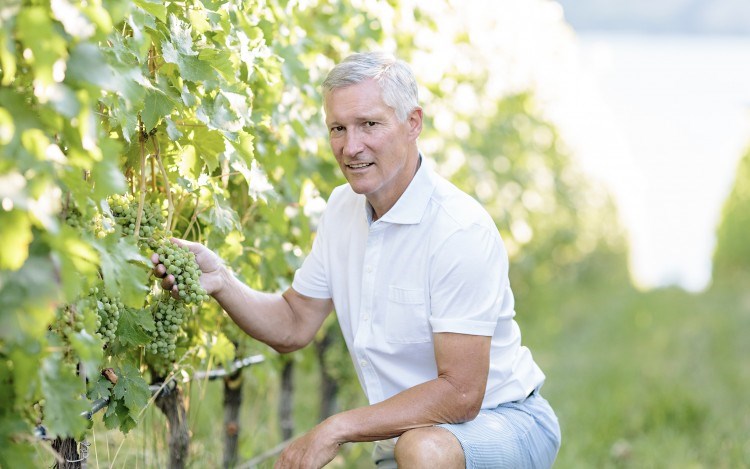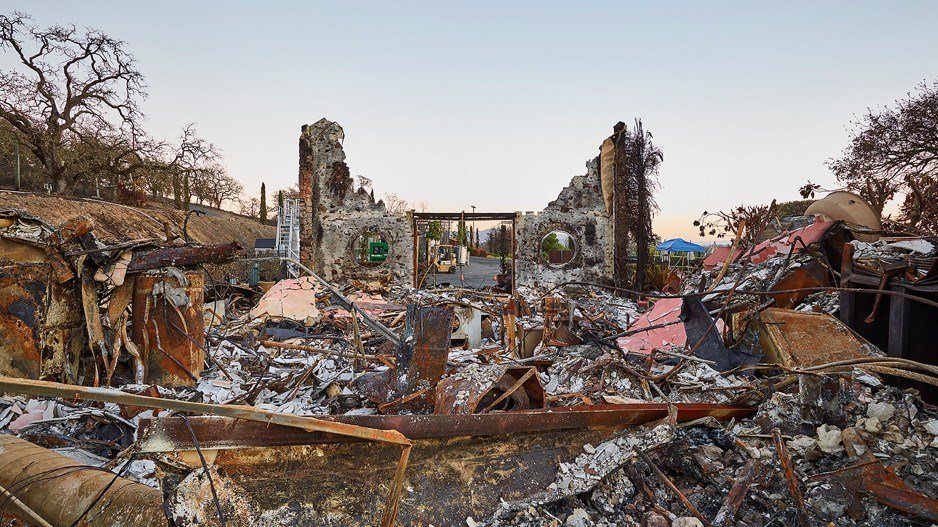Wildfires have blazed across B.C. for weeks, prompting residents to flee their homes and fill hotel rooms.
Some hotels have tried to help evacuees by temporarily providing free or discounted rooms, but it’s not the kind of business operators want.
The presence of the fires likely drives away more business than it generates, and with climate change, extreme summer fire seasons could become the norm.
One result could be that these fires become etched indelibly into the minds of potential visitors to B.C. and could prompt some to postpone or cancel trips.
After fire destroyed the Village of Lytton, for example, images of what remained filled TV newscasts around the world.
“There’s definitely a risk [that fewer international visitors will come to B.C. in the summer],” said British Columbia Restaurant and Foodservices Association CEO Ian Tostenson. “We’re going to have to counter that with whatever messages we have.”
Metro Vancouver weathered much of the summer without having smoky skies, he added.
Other tourism observers are convinced that the pattern of tourist inflows will change from what was the norm before the pandemic.
In 2019, the busiest month for U.S. and other international visitors entering Canada via B.C. was July, with 949,540 such travellers. The least busy month that year was November, when 273,999 entered B.C.
That disparity in monthly visitors is likely to shrink, said Wasserman + Partners Advertising chairman Alvin Wasserman, whose firm does some work for Destination British Columbia.
“There’ll be no more shoulder seasons,” said Wasserman, who was pivotal in the success of B.C.’s Super, Natural branding campaign, having worked on it for decades starting in the late 1970s.
“Prime time will be anytime,” he said. “Prime time could be now. It could be in June, or October. You could go to wine country in December.”
Smart tourism operators will realize this shift in consumer demand, he said, and adjust their business schedules to cater to visitors year-round.
Another trend Wasserman sees in the hotel sector is that competition and customer demand will force hoteliers to be more flexible in offering full refunds for cancellations up until a short time before the stay was supposed to take place.
This is in part prompted by customers’ reticence to book vacations if they fear wildfire smoke, or nearby fires that could force an evacuation. If hoteliers do not offer refunds, that will chase away business, Wasserman said.
Keeping wine tourism alive is essential for the industry
Keeping wine tourism alive is vital for winery owners not only because on-premises sales are more lucrative than those that come via third parties, but also because having customers visit in person helps build a relationship with the winery brand, said Painted Rock Estate Winery owner John Skinner.
He believes many wine tourists will do their research and discover that while the Okanagan often has fires in the summer, vast swathes of the region are not near fires and have clear blue skies.
“I’m quite disappointed in a lot of the media,” said Skinner, whose winery briefly closed last year because of a nearby fire.
“There’s a responsibility [to report the news,] and I get it, but you can also err to optimism, and not pessimism or just having shocking headlines.”
Skinner credits helicopter water bombers for saving his facility last year.

(Image: Painted Rock Estate Winery principal John Skinner checks on how his grapes are growing | Jon Adrian Photography)
Other British Columbians who own wineries have not been as lucky.
West Vancouver’s Ray Signorello lost his Signorello Estate winery in Napa Valley to California wildfires in October 2017 – one week after his staff picked his winery’s grapes.
“Our wine was made and in stainless steel vats so smoke was immaterial to it,” said Signorello, who spent most of the pandemic in B.C.
Insurance has helped him spend tens of thousands of dollars rebuilding his winery entirely of steel, concrete and other fire-resistant materials. He also newly has the capacity to store 60,000 gallons of water, and large pumps and fire hoses.
California is being ravaged by the Dixie Wildfire, which at last count had burned nearly 500,000 acres northeast of San Francisco, and is the second-largest wildfire in the state's history.
Visits so far this summer, however, have been steady, Signorello said, with many Californians eager to take vacations in their own state. American visitors are more important for his winery's bottom line because they are more likely to buy his wines. International tourists, he explained, buy less either because they don't want to pack the weight for the longer trip home, or because of customs regulations and duties.
He expects the strong visitor traffic to continue into the fall, which is his busiest season, because most of his visitors are adults, and not families on vacation who need to go in the summer because that is when the kids are not in school. •




